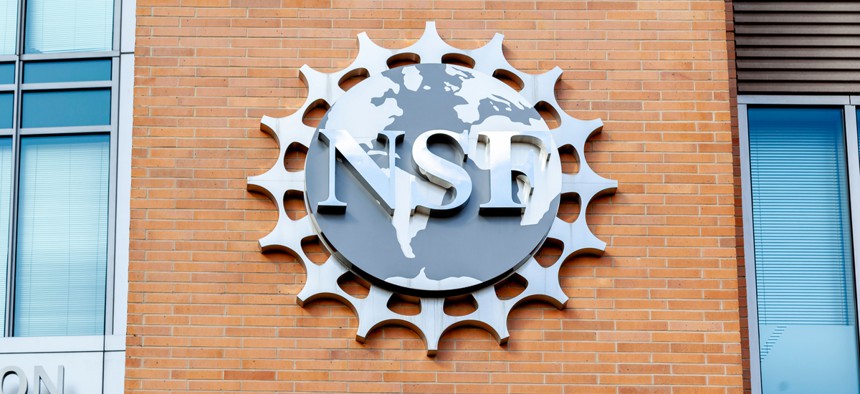New National Science Foundation Director Begins Six-Year Term

JHVEPhoto/Shutterstock.com
Sethuraman “Panch” Panchanathan officially became the 15th director of the government’s lead scientific research outreach and funding arm.
After waiting six months for Senate approval, President Trump’s pick to lead the National Science Foundation has been made official, giving the agency a new director to lead it through the next six years.
On Tuesday, the White House announced the official commissioning of Sethuraman “Panch” Panchanathan as the 15th director of the federal government’s lead agency in support of academic scientific research.
Panchanathan takes over for White House Office of Science and Technology Policy Director Kelvin Dregemeier, who has been serving in an acting capacity since the term of the previous director, France Cordova, expired in March.
“A major reason why the National Science Foundation has such a rich history in ensuring American leadership globally in science and engineering is the people who work there,” Droegemeier said Tuesday in a statement. “Dr. Panchanathan has the creativity, tenacity, communication skills, understanding of the research enterprise, and commitment to lead this agency successfully and continue moving the scientific enterprise forward on the endless frontier.”
Panchanathan was nominated in December to replace the outgoing Cordova; his appointment received Senate confirmation on June 18.
Prior to taking the reins of NSF, Panchanathan served on the National Science Board for six years, helping the foundation set its research and funding priorities. He is also the executive vice president and chief research and innovation officer for Arizona State University and founding director of the university’s Center for Cognitive Ubiquitous Computing.
“Right now, the world faces significant scientific challenges—most obviously a pandemic," Panchanathan said in a blog posted Tuesday to NSF’s website. "But in addition to providing creative solutions to address current problems, our eyes are on the future, leveraging partnerships at every level and encouraging diversity that breeds new ideas for a robust pipeline of young scientists. It is only through that expansive perspective on the scientific and engineering enterprise that we can recognize the brightest ideas and nurture them into tomorrow's world-class technological innovations."
That push for diversity in research is a key part of Panchanathan’s “three pillars” for the future of NSF: advancing the nation’s scientific research capabilities, ensuring inclusivity and maintaining America’s leadership in science and engineering. To be successful, Panchanathan said the agency will need to focus on encouraging diversity from a broad spectrum of backgrounds.
"World-class science requires talented scientists and engineers drawn from every corner of our nation—from remote rural areas to the largest urban centers. The best science is shaped by a wide range of perspectives," he said. "I want people to get excited by science and have the opportunity to be part of the scientific enterprise. It is our responsibility to inspire talent and find ways to catalyze innovation across our country."
Cordova offered her unqualified support for Panchanathan as her replacement when it was announced in December.
“For five years, Dr. Sethuraman Panchanathan has been a bold, energizing presence on the National Science Board and he was a leader in every sense of the word in the research community prior to that,” she said. “I was delighted to learn that the White House named him as nominee to serve as the next director of the National Science Foundation. This position requires the ability to connect with all stakeholders in the U.S. science and engineering community, walking the fine line between serving and leading. Panch has the character and knowledge that make him an ideal fit for the job.”
“As my own term draws to a close, I am heartened at the idea of Panch as my successor,” she added.
NEXT STORY: FCW Insider: June 23






